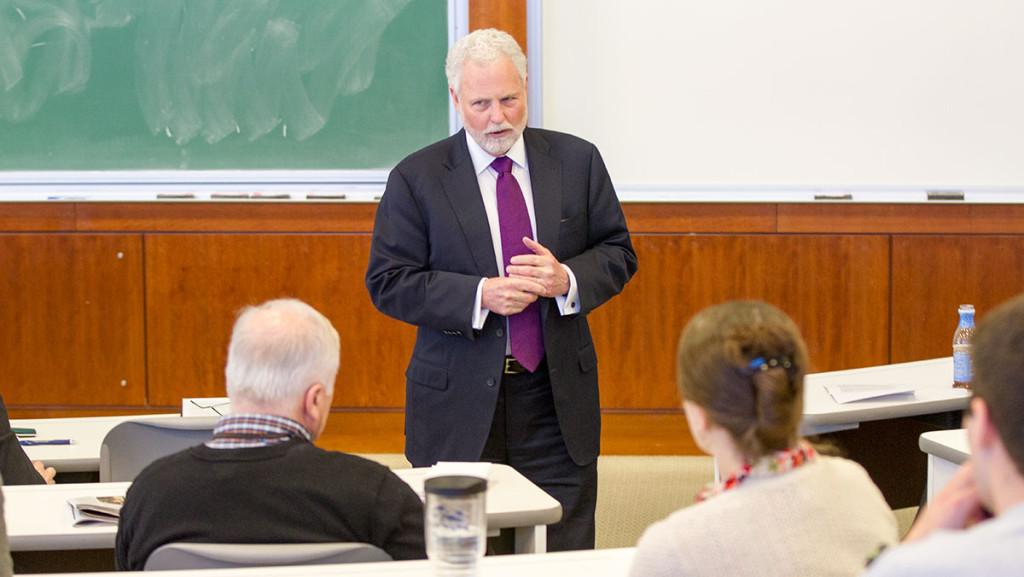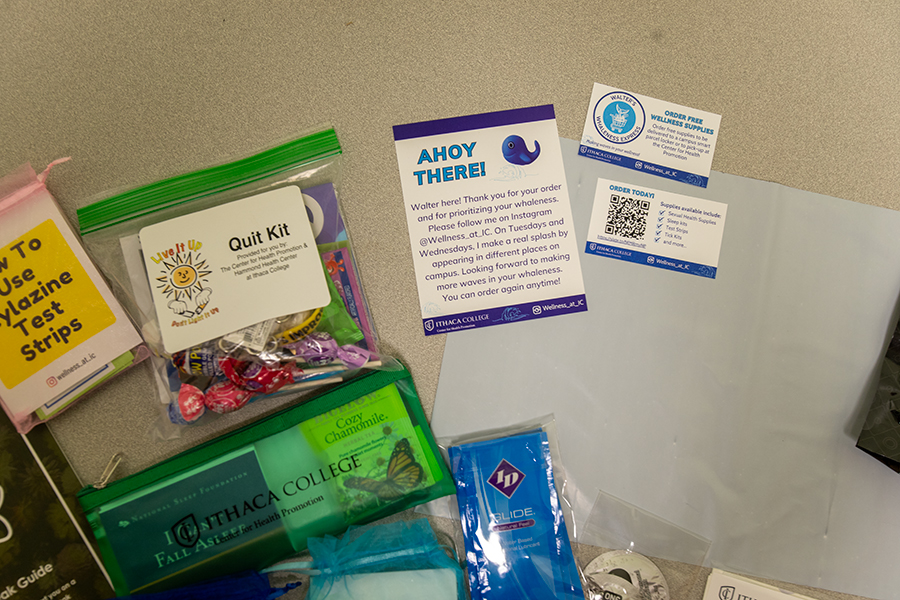Ithaca College hosted a presentation from the second of four candidates for the position of School of Business dean April 2, who presented his plans for the job to an audience of the college’s business community in the Dorothy D. and Roy H. Park Center for Business and Sustainable Enterprise.
Pat Dickson, current associate dean of undergraduate programs at Wake Forest University’s School of Business and former president of the United States Association of Small Business and Entrepreneurship, addressed many of the issues he sees with the evolution of business education and offered his insight in addressing them on campus.
Dickson began his presentation by outlining the success of the program at Wake Forest, noting that its School of Business consistently makes the top rankings in national publications. In 2013, U.S. News & World Report ranked the school at 34th nationally, placing its accounting program at 18th in the country.
He continued his presentation by outlining his keys for success in the world of business education, what he called his “four pillars.”
Unique Body of Knowledge and Professional Development
Dickson began by addressing his belief that business students must acquire a skillset and a knowledge base that sets them apart from other graduates if they are to succeed. He said the incorporation of research-based learning helps students make the most of their education as they move into the workforce.
“Are we really giving them something that is discernibly different for the companies that are hiring them?” he asked. “We need to be focusing on the real problems that managers face, and then take that research and bring it into the classrooms so that students are understanding how the research that we’re doing helps managers solve those problems.”
Dickson’s “second pillar” focused on the development of professional management skills through the college’s ability to provide internships and practical experience.
“As a professional school, we have to be making certain that our students are getting clinical experience before they leave,” he said. “We need to give them the discernible knowledge, and we need to give them the opportunity to apply it.”
Ethics and Integrity
Dickson continued his presentation with a discussion of ethical responsibility and business integrity. His “third pillar” stressed the need for constant education in character and professionalism.
“We have to prepare our students to think deeply about the appropriate responsibilities of companies that people can believe in,” he said. “If you can figure out how to make certain that, before they leave your programs, that they have a strong sense of what integrity is, this strong sense of what it means to be a business professional — if you can do that, that’s a game-changer.”
Dickson said the most effective way for students to learn these professional and integral aspects of business and entrepreneurship is for the faculty and staff to constantly model ethical behavior in their interactions. From there, he said, it’s up to the administration to make sure those behaviors stick as they move into the workforce.
Concern for Student Outcomes
Dickson concluded his presentation with discussion of his “fourth pillar” of business education, which he believes is the college’s need to hold itself accountable for the preparation of graduating students.
“We have to focus relentlessly on the student outcomes,” he said. “We are a professional school, and I think we can’t shake that responsibility of holding ourselves accountable as business schools to make sure that our students are going into industry, that they’re going into the kinds of jobs that we’re teaching them the skill sets they need to be in.”
Looking into the students’ futures, he said, is vital for shaping a strong and competent business program at the college.
“We need to make certain that our employers are satisfied with the quality of those students that we’re sending them,” Dickson said.







